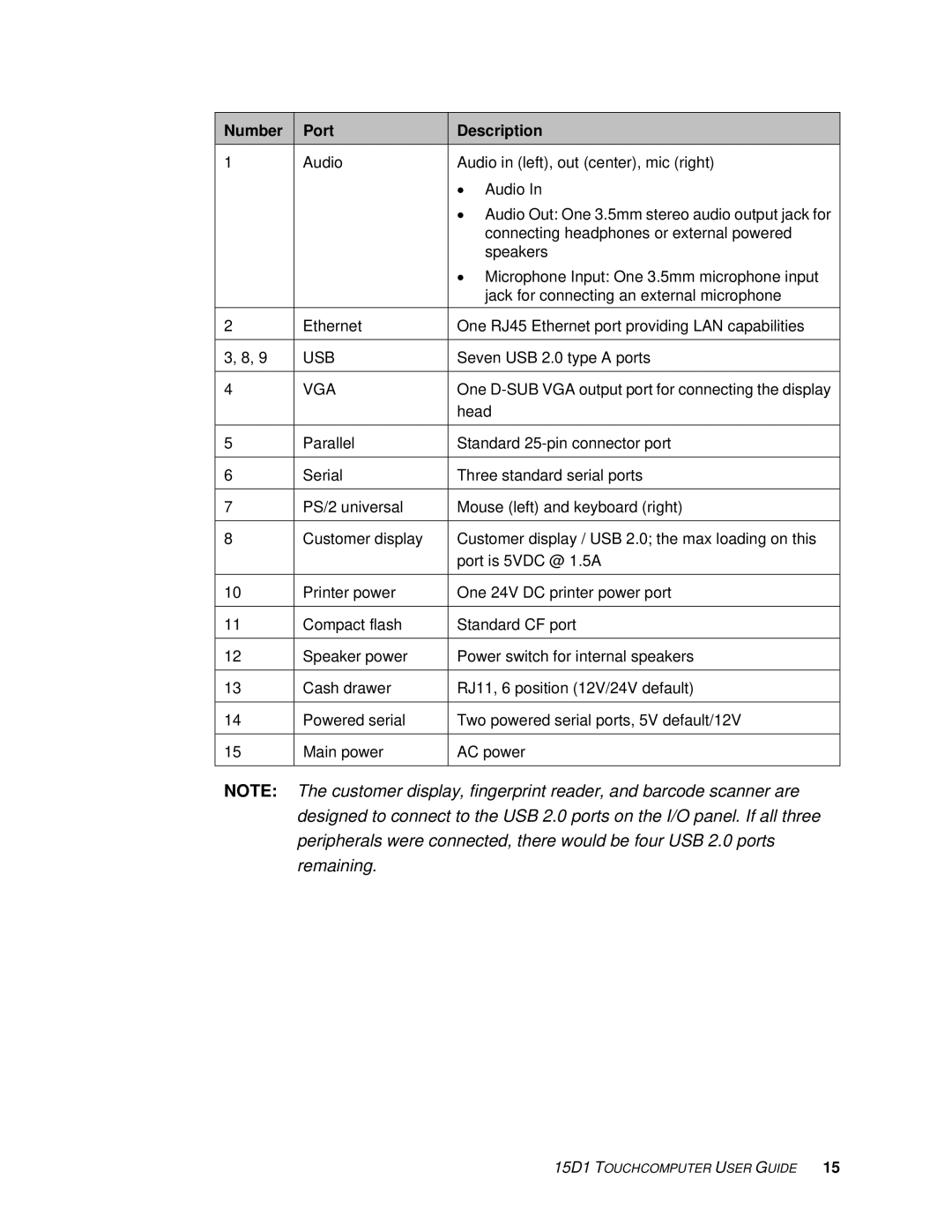Number | Port | Description |
1 | Audio | Audio in (left), out (center), mic (right) |
|
| • Audio In |
|
| • Audio Out: One 3.5mm stereo audio output jack for |
|
| connecting headphones or external powered |
|
| speakers |
|
| • Microphone Input: One 3.5mm microphone input |
|
| jack for connecting an external microphone |
2 | Ethernet | One RJ45 Ethernet port providing LAN capabilities |
|
|
|
3, 8, 9 | USB | Seven USB 2.0 type A ports |
|
|
|
4 | VGA | One |
|
| head |
|
|
|
5 | Parallel | Standard |
|
|
|
6 | Serial | Three standard serial ports |
|
|
|
7 | PS/2 universal | Mouse (left) and keyboard (right) |
|
|
|
8 | Customer display | Customer display / USB 2.0; the max loading on this |
|
| port is 5VDC @ 1.5A |
|
|
|
10 | Printer power | One 24V DC printer power port |
|
|
|
11 | Compact flash | Standard CF port |
|
|
|
12 | Speaker power | Power switch for internal speakers |
|
|
|
13 | Cash drawer | RJ11, 6 position (12V/24V default) |
|
|
|
14 | Powered serial | Two powered serial ports, 5V default/12V |
|
|
|
15 | Main power | AC power |
|
|
|
NOTE: The customer display, fingerprint reader, and barcode scanner are designed to connect to the USB 2.0 ports on the I/O panel. If all three peripherals were connected, there would be four USB 2.0 ports remaining.
